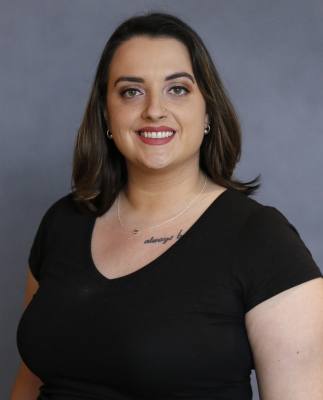Clear Creek ISD trustees and district leaders reviewed the results of an equity audit, that was first commissioned in December 2020, during the Aug. 23 board meeting.
No agenda items at the meeting involved implementation of any specifics from the audit, which was conducted by Curriculum Management Solutions, Inc. Trustees, Superintendent Eric Williams and Robert Bayard, deputy superintendent of curriculum and instruction, emphasized CCISD is not planning to act on every recommendation given by CMSi.
The company was tasked with answering a specific question, Bayard said: To what extent is the district supporting and assuring equity and equality in its treatment of and services to students?
“Every parent wants the very best for their individual child,” Bayard said. “Every educator here in Clear Creek ISD wants the very best for each of our individual students.”
During the public comment portion of the meeting, several parents expressed concerns about the audit, its findings and whether addressing questions of equity would lead to critical race theory in schools. CCISD modified a policy earlier this year to address concerns related to CRT.
Bayard said multiple times during the presentation the district does not support, and will not implement, CRT. The theory involves examining United States history through a lens of racism, posing the view that law and legal institutions are inherently racist, and that race itself is a socially-constructed concept used by white people to promote white supremacy at the expense of people of color.
“I want to emphasize ... rather than focusing on parity of student outcomes, we want to focus on maximizing the growth of individual students,” Bayard said Aug. 23 “We want to recognize student strengths and opportunities.”
Here is what community members need to know about the audit, its findings and how the district plans to proceed. Click here to view board materials related to the audit under information and discussion item 13.A.
District background, more on CMSi
CCISD has worked in some capacity with CMSi since 2009, according to board presentations. The district first worked with CMSi on a curriculum management audit that was updated five years later in 2014, leaders said.
The board approved CCISD’s 2020-25 strategic plan in May 2020, which included a specific result statement about “increased inclusivity for all.” Superintendent targets were approved by the board the following September, and those targets included an equity audit. The audit was requested and commissioned by former Superintendent Greg Smith.
The audit was conducted from December to April and included data analysis, document reviews and interviews as necessary. It looked at various aspects of the district’s operations that affect or influence student learning in the system. These included plans, policies and program enrollment data, as well as student achievement data and data related to student discipline, retention and dropout rates.
CCISD spent just more than $14,000 on the audit, Community Impact Newspaper previously reported. Board President Jay Cunningham and trustee Laura DuPont said the CMSi audit paralleled findings from the 2019 Gibson report, which specifically examined special education populations.
Findings and recommendations
The audit focused on academic, as well as social and emotional, equity, but not financial or racial equity, Bayard said Aug. 23. CCISD’s strengths, as identified by the audit, include student achievement, opportunities for meeting individual needs, a focus on student behavior supports, a commitment to the whole child and an overall responsiveness to equity challenges.
CMSi provided several improvement points for CCISD, along with accompanying tasks to assist in the improvements. Bayard read them verbatim to the board Aug. 23. The board would be involved in further conversations before any recommendations from the audit are implemented, he said.
These improvement points included: a lack of clear definitions or established expectations for equal access and comparable learning outcomes; influence of economic need on end-of-year exam performance; and the diversity of CCISD’s student population not being represented in its body of personnel.
Based on reports the district had to compile early this year due to House Bill 3 requirements, CCISD was already aware of how economic need is affecting exam performance, Bayard said. The district has aimed to recruit staff from diverse areas, he added. Of the points provided, trustees and district leaders spent the most time discussing the lack of clear definitions and expectations for equal access.
A district committee may devise its own definition of equity at some point, Bayard said. Trustees Scott Bowen and Jonathan Cottrell both encouraged district leaders to exercise caution with their use of the word “equity.”
“We can do more to help each individual child,” Bayard said Aug. 23. “It’s not about race, it’s not about economics, it’s not even about individual programs, it’s about the individual needs of each child.”
Equity debate
Trustees were split on whether CCISD should shy away from the use of the word “equity” moving forward. Bowen pointed out the term “means something different to every single person who hears it,” suggesting the district coin its own word or phrase to communicate a similar message.
Williams did not indicate his stance one way or another, instead giving input about how the district should prioritize its values.
“I like the emphasis on growth for all students and what intervention support [each individual student needs] in order to grow,” he said. “To some people, that’s going to be ‘equity.’ To some people, though, there may be baggage about what that word means.”
Bayard said he understands the fear within the community around use of the word, and he stressed there is nothing covert about how the district will address equity-related needs. There is a need for finding the right term around these plans, one that best represents what CCISD believes in, he said.
DuPont agreed the district would benefit from its own definition of equity, but encouraged leaders not to rule out using the word.
“It’s our responsibility to listen ... and do what is needed to make everyone feel safe and included,” she said. “I’m going to continue to research about what’s happening in the area and state and nation in regards to equity, because that’s how people are talking about it. It doesn’t have to be a bad thing, and we need to define it, what it does mean to us and how it’s going to help every student.”





